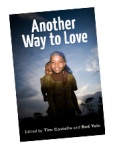 This is such a dire situation. Please be in prayer and give what you can through agencies like World Vision and Oxfam.
This is such a dire situation. Please be in prayer and give what you can through agencies like World Vision and Oxfam.
Read the details here.
Faith and relevance in the 21st century
 This is such a dire situation. Please be in prayer and give what you can through agencies like World Vision and Oxfam.
This is such a dire situation. Please be in prayer and give what you can through agencies like World Vision and Oxfam.
Read the details here.
 When I was in my late teens, I believed that salvation was all about having a personal relationship with Jesus so I would get to heaven when I die and avoid hell. While social justice was good, it was not the main game, as people’s eternal destiny was surely infinitely more important.
When I was in my late teens, I believed that salvation was all about having a personal relationship with Jesus so I would get to heaven when I die and avoid hell. While social justice was good, it was not the main game, as people’s eternal destiny was surely infinitely more important.
I don’t believe that today. I still believe that a personal relationship with Jesus is crucial – the human heart needs just as much renewal as society does – but today I believe that any ‘salvation’ that stops there is not biblical and is not honouring God for who God is. Any kind of ‘salvation’ that stops at a personal relationship with Jesus is too small and does not understand how much God loves everything that God made. Salvation is spiritual, sure, and it is physical, emotional and social as well.
In September 2010, World Vision Australia held a theological forum looking at the question of what social justice has to do with salvation. The speakers were Tim Foster from Ridley College, Merrill Kitchen, former Principal of the Churches of Christ Theological College, and Siu Fung Wu from World Vision. Each of them gave a presentation on their view of the topic, and papers of each of their presentations, along with a response by me, have now been published online in Ridley College’s Centre for Applied Christian Ethics paper, BriefCACE. Click here to check them out.
 There was a wonderful sermon by Shane Claiborne this morning at Surrender. He spoke about tearing down walls in our lives and in the world, and how that is what the kingdom is about. Some of the other points Shane made were as follows:
There was a wonderful sermon by Shane Claiborne this morning at Surrender. He spoke about tearing down walls in our lives and in the world, and how that is what the kingdom is about. Some of the other points Shane made were as follows:
During his talk Shane showed shots of the Israel/Palestine wall with moving paintings on it of people tearing down or opening up the wall. May it happen soon and may it happen peacefully. It happened in Berlin in 1989 and it can happen again with enough pressure.
I just read an article stating that the ANZ admits it is ‘indirectly’ financing the making of cluster bombs. It is in the latest edition of Online Opinion. I find it astonishing that this is not front page news. The ANZ is one of the big banks in Australia and it is literally getting away with murder.
The article includes the clip above (it’s a UK clip highlighting other banks such as Barclays and HSBC, the latter being a sponsor of Hawthorn Football Club) and a link to a report by the NGO, IKV Pax Christi. The report shows a number of other banks that fund cluster bomb manufacturers in one way or another. Banks have not had a good rap for many years, and that reputation is further justified by this damning report. Knowing that one of our own banks in Australia is a prime culprit just brings it closer to home. Spread this story far and wide.
 This morning I spoke at my church about how I think Christians should think about the issue of how to vote at our Federal election next Saturday. The following is an extended version of a post I put on this website on 7 August.
This morning I spoke at my church about how I think Christians should think about the issue of how to vote at our Federal election next Saturday. The following is an extended version of a post I put on this website on 7 August.
I’ve been thinking a lot about how to approach this, because politics of course is a very sensitive issue; it brings out both the best and worst of us. It can cause normally rational people to be irrational, and so I’m aware that I need to be very careful about what I say. That’s why I want to bring across some points as to how I want to approach this topic and how I think a Christian ought to think when deciding their vote.
Firstly, I come at this topic first and foremost as a follower of Jesus and not to endorse any political party. These thoughts do come out of a deep concern for biblical faith and as a follower of Jesus who asks for God’s will to be done in his life every day. I can’t be so arrogant as to claim to know who Jesus would vote for, but I do believe there are particular biblical principles to keep in mind when deciding which way to cast our vote next week.
Secondly, we are amazingly privileged in this country. We are a peaceful democracy where we have the freedom to vote for who we wish. Dave Andrews recently related how he was speaking to someone who I think was from Pakistan, and they couldn’t believe that we could place our vote and there could be a change of Government without any talk of corruption, that the losing party would hand over power without any resistance and that it would all happen peacefully. He couldn’t believe it. Yet this is what we take for granted.
Thirdly, Christianity is not a set of values. When talking about an election and how we should vote, it obviously does relate to a set of values and which party we think will live that out. But ultimately, Christianity is not about that; it is about God transforming the creation, not just societies but the human heart as well.
Fourthly, Christians of all persuasions are politically active, and Christians have a right to vote according to how their faith informs their vote. And there are Christians in all political parties, which just shows the different ways in which our faith is expressed, and what God has called different people to.
Fifthly, it is vitally important for Christians to be involved in the political process in one way or another. God loves this world and we are called to love what God loves and seek the betterment of the world around us. In fact the word ‘politics’ in its Greek root means of and for citizens – for the people. So political involvement in some form or other is a godly way of living out your faith. For some that might mean writing letters to your MP, while for others it might mean joining a political party or even running for office. Some people say that the best way to effect real policy change is to join a political party while others would say that to be part of a lobby group has the best effect at change. Personally I believe that prophetic political engagement is one that has access to those in power but is able to remain neutral and speak God’s Word without compromise and without endorsing a particular party overall. Some can do that from the inside, such as the prophet Daniel in the Old Testament who was high up in the Government of his day. So God uses people in all sorts of ways.
Sixthly, I don’t agree that the pulpit should ever be used to promote any particular political party, either subtly or overtly. What matters is that, whoever you vote for, that we vote according to Christian principles and that we vote as a follower of Jesus. The pulpit is not a place to endorse a particular political party.
Seventh, I think it’s important to expose ideas which claim to be Christian but which clearly are not. Of course there are different interpretations of what is Christian and what is not, but some things are clear. In some cases I believe it is right to name names. Paul did so in 2 Timothy, and Jesus did so as well. However as I have not met the Christian leaders who I believe have made some dangerous statements in this election campaign, I will not name them here. You can look them up for yourselves. I do believe though that when people make public statements they need to be open to public scrutiny. We should never attack them personally though; we should only attack their policies with a reasoned argument that is biblically based. I believe in these people’s sincerity as people who love God, but I also believe that it is possible to be sincerely wrong. I am also open to the possibility that I am sincerely wrong. So whatever I say about this topic in this sermon, don’t just blindly accept it. Acts 17 says that “the Berean Jews were of more noble character than those in Thessalonica, for they received the message with great eagerness and examined the Scriptures every day to see if what Paul said was true.” So rather than just accepting what I say, go back to your Bibles and check it out for yourself.
Eighth, I believe that any reading of the Bible simply has to be done in context, and therefore the issues that Christians claim the Bible has a clear statement on need to be looked at in the context in which they were written and in the context of the overall message of the Bible. It has been said, rightly I believe, that we often read the Bible too devotionally ie. we take little passages or verses and don’t read them in the light of the overall message of what God is saying to us through His Word.
Along those lines one of this country’s more prominent Christian leaders, in a recent newsletter, effectively said that you cannot be a Christian and not vote Liberal. Here’s what he said, and I quote – “If you still say “I will vote Labor” that is your choice. That’s the freedom we enjoy in a democracy, but I must say you definitely cannot be a Christian who has a proper relationship with Jesus if you vote this way.” And many of us here will no doubt think the opposite.
I was also at a wedding on election day 2007 where the MC said he hoped the Liberals would win. I thought that was inappropriate at that time, just as I think it would be inappropriate for someone to get up in the pulpit and say you should vote for a particular party if you are a real Christian. There will be people in churches all over this country with a diverse range of opinions.
One guide as to how a Christian should vote that you may have come across recently is the Australian Christian Values checklist. This checklist shows a large number of issues and where the parties stand on each of them. Each party then receives a tick or a cross depending on whether or not they support these ‘Christian values. This list however simply does not represent the full spectrum of Christian values. There is literally nothing on refugees and asylum seekers, nor anything whatsoever about caring for the poor. Thank goodness for that. Here I have been all these years working on these issues thinking they were Christian(!). It seems I can take a rest for a while.
The language that is used to endorse the Australian Christian Values checklist is deliberately aimed at supporting particular parties and denigrating others. Terms like ‘the abortion holocaust’ clearly imply a particular voting position. Now please don’t misunderstand me on this. I am not saying that abortion is not an important issue. Just like issues of poverty are often ignored by those on the right, issues like abortion are equally ignored by those on the left). But you will notice that in the advice given on the website that endorses this checklist, there is not one word about the holocaust of 24,000 children dying of poverty every day around the world. As Jim Wallis from Sojourners has said, why is it that for some Christians, saving the lives of children in the womb is paramount, but as soon as they come out of the womb we don’t care about them anymore? The same could of course be said the other way too.
Now when asked why his position did not include anything on issues of poverty and asylum seekers, one Christian leader who endorses this checklist says that the Bible is clear on some issues like abortion, and that’s why they were featured in his articles and in the Australian Christian Values checklist. Then he says that the Bible gives some leeway on other issues but there is room to move on ways to achieve things like economic justice. So is the Bible not clear on issues of wealth and poverty, and are there not different ways of dealing with the abortion issue? This is not a neutral checklist. It clearly promotes certain parties against others. Where I believe these people have it wrong is that I believe that everything we know about God we know through Jesus who loved those who were powerless and marginalised. It seems that is not the position taken by those who have put together this checklist.
Thankfully though the other side is also being reported. The ABC had an article a couple of weeks ago in which a candidate from another party who is a Christian tells her side of the story about why she is a member of that party.
So to promote issues of wealth and poverty, I think it is best to show a list of issues that the Sojourners community in the US put forward prior to a recent election over there. They released these statements before the 2004 election under the heading, ‘God is not a Republican. Or a Democrat’. While the statements released by Sojourners were intended specifically for the US election, they apply equally to our own election in Australia. And so we can say that God is not a Liberal, nor Labor, nor a Green, or tied to any other party. They are a very useful guide when we think of who to vote for on August 21. You can also find this list in an article by Tim Costello in this month’s Eternity magazine. The points listed are as follows:
Barney Zwartz, the religion editor of The Age, wrote a couple of weeks ago something which is really pretty obvious but something which we don’t always consider, and that is that no party is perfect. He highlights this by saying that “whenever we get the perfect candidate, she or he has a habit of disappointing us the most.” Witness the outpouring of hope that came with the rise of Barack Obama. I remember thinking at the time, paraphrasing Monty Python, that he’s not the Messiah, he’s just the President, and he’s inevitably going to disappoint. Whoever you vote for, they are going to disappoint you.
As well as this, there are going to be policies in every party that we won’t agree with. You might vote for a particular party with your Christian conscience and someone will come up to you and ask how you could possibly be a Christian and vote for them?
One of the issues that has arisen amongst Christians in this election campaign is that of voting for someone because they are a Christian. I think that is one of the most irresponsible actions that a Christian voter can take. It shows a profound ignorance of the issues that different parties stand for. Tim Costello sometimes tells the story of the South African government during the apartheid years. They were all Bible-believing Christians. They believed all the right things but they were inherently racist and therefore an evil regime. Recently there’s been talk of Julia Gillard’s atheistic position. I agree though with Tony Abbott when he says that we should vote for a person not because they are a Christian or not, but because of their policies. Real faith is lived out, not just proclaimed.
Whichever party you plan to vote for, there are certain things that Christians need to take into account. The core of this is about voting for those less fortunate than ourselves. It has been said by quite a few people over the years that the measure of a society lies in how it treats its most vulnerable citizens.
In recent times the place of Christian faith in politics has gained traction in the media. Of course we all knew about the previous Prime Minister’s faith position, and how the current Prime Minister’s own position as someone who does not profess a Christian faith. And a couple of months ago we had Kevin Rudd and Tony Abbott speaking to Christians across the nation in a live feed from the old Parliament House in Canberra. I think it’s great to see Christian faith getting an airing during this campaign, all sides of the story being laid out for all to see and decide on.
In the end we need to vote prayerfully and with our conscience. The final word is probably best left to the Brotherhood of St Laurence, who came out with a pearler during a past election. It simply said “vote for somebody else.” Amen.
I first went to this Micah Challenge run event in 2008 and I was so inspired then that I have always wanted to come back. I couldn’t make it last year so I’m wrapped to be blogging from Canberra on today, the first day of VFJ 2010.
The first 2 days are times of teaching and learning, not just about policy and messaging, but about the reason we are actually here in the first place, which is to play our part in helping to bring in the Kingdom of God. Dave Andrews is one of the speakers this year and he has, as he always is, been an inspiration with his passionate delivery and moving stories. One of the pearls of wisdom he gave us today was that “when lots of people do lots of little things, big changes are possible”. It kind of reminds me of the first disciples, 12 ‘unschooled, ordinary people’ who led a movement that turned their world completely upside down and let to half the Roman Empire claiming allegiance to the Man from Nazareth a few centuries later.
Dave’s main message was on the Beattitudes, those wonderful words of Jesus from Matthew’s and Luke’s Gospel. It’s interesting how almost every Christian would be able to say they know of the 10 commandments, but not many would be able to say how many Beattitudes there are (there are 8, depending on how you define them). One of the things that Dave told us about the Beattitudes was that they talk about justice and then about mercy, reminding us that the kingdom is not just about justice but about mercy as well. Many people who are into justice are merciless, and this is something I need to be aware of as well. Justice, compassion and mercy can never be separated.
Anyway, our next session is about to start. More tomorrow.
 This book builds on the extraordinary influence of its predecessor, Same Kind of Different As Me. It tells stories of how readers of that book were influenced by the story of wealthy art dealer Ron, and homeless man Denver, and their initial reluctance and then determined perseverance to bring good news to the poor. The inspiration behind this story though is Ron’s now deceased wife, Debbie, as she struggles and eventually succumbs to the ravages of cancer. Throughout this short but moving account, tales of Debbie’s humility and determination to make a difference abound.
This book builds on the extraordinary influence of its predecessor, Same Kind of Different As Me. It tells stories of how readers of that book were influenced by the story of wealthy art dealer Ron, and homeless man Denver, and their initial reluctance and then determined perseverance to bring good news to the poor. The inspiration behind this story though is Ron’s now deceased wife, Debbie, as she struggles and eventually succumbs to the ravages of cancer. Throughout this short but moving account, tales of Debbie’s humility and determination to make a difference abound.
The stories in What Difference Do It Make? are ones of hope amidst suffering, and of resilience in the midst of heartache. What I love about Denver’s story in particular is that he tells it like it is, in his own language. There is no pretence, and no feeble attempts at respectability. It is just Denver, the way God made him. One of the points Denver brings across in different ways throughout this tome is that, if you want to know what it’s like to be homeless, don’t go to a conference on homelessness, but speak to someone who actually is or has been homeless (or better still, spend a few nights on the streets with them).
 Unfortunately the Rudd Government’s stance on asylum seekers is not that much different to the shameful approach of the Howard Government. It is about not much more than political people-pleasing. Mr Rudd, with his ‘tough but fair’ approach, is looking to have it both ways. And unfortunately, much of the Australian media are going along for the ride. There are touches of courage being shown by journalists here and there but on the whole, no one is really saying it like it is.
Unfortunately the Rudd Government’s stance on asylum seekers is not that much different to the shameful approach of the Howard Government. It is about not much more than political people-pleasing. Mr Rudd, with his ‘tough but fair’ approach, is looking to have it both ways. And unfortunately, much of the Australian media are going along for the ride. There are touches of courage being shown by journalists here and there but on the whole, no one is really saying it like it is.
Get Up, the independent advocacy organisation, has produced a factsheet dealing with some of the myths about asylum seekers that are being peddled in much of the media today. Some of the issues it deals with are:
It’s a pity that Australian Governments of both political persuasions don’t seem to remember that many of our ancestors on the First Fleet were also ‘boat people’. Brought here, not by choice, but as ‘criminals’, these convicts made a life for themselves under the most brutal conditions. Similarly, in the 1950s, European migrants came to Australia from the ravages of the Second World War and made good. They were hounded then by many Anglo-Saxons, and nothing seems to have changed. The voices of reason are so often drowned out by the shrill voices of fear and xenophobia. Why are we so scared of the ‘other’? Why are we so hypocritical?
The hard line should be taken against the people smugglers, not the asylum seekers themselves. It’s like the issue of overseas aid. We didn’t hold back on giving aid to Myanmar when they had their cyclone last year just because they have a military dictatorship. I don’t recall anyone complaining about that. We’re happy to slap each other on the back telling each other how generous we are when we chip in to give to a disaster overseas, but when it comes to my backyard, the attitude often is that we couldn’t possibly let those same people, now called ‘queue jumpers’ in to take all our jobs. Our double standards are atrocious.
Please support Get Up and help to destroy the myths that abound in so many parts of our country today.
Did you know that there is a high likelihood that some of the stuff you buy at Christian bookstores is made by child slaves? That cross you wear around your neck could be made by people in China who are paid no more than 11 cents per hour.
 Clearly, such working conditions are a stench in the nostrils of a God of justice and love. The Justice & International Mission Unit of the Uniting Church in Victoria and Tasmania (JIM), among others, have started a campaign called Just Holy Hardware which calls for “Christian communities, retailers and suppliers [to]…work together to try to ensure that the fundamental human dignity of those who make Christian-related products are respected”.
Clearly, such working conditions are a stench in the nostrils of a God of justice and love. The Justice & International Mission Unit of the Uniting Church in Victoria and Tasmania (JIM), among others, have started a campaign called Just Holy Hardware which calls for “Christian communities, retailers and suppliers [to]…work together to try to ensure that the fundamental human dignity of those who make Christian-related products are respected”.
So far, Central Catholic Bookstore and UniChurch Books are involved in the campaign, and just recently, Koorong have agreed to meet with the JIM unit. However, Word have not responded to several attempts to start a conversation about this issue.
This concern has arisen because Word sells a variety of products made in China, and other countries, where there are documented cases of human rights abuses of workers.
The campaign recognises that, just because a product is made in China doesn’t mean it has been made by slave labour, but without investigation we don’t know. In today’s global village, ignorance can no longer be an excuse, at least not for very long.
Click on the logo in this post to learn more and send a message to Word to get in on the act, especially as Christmas approaches and sales, and therefore possible abuses, increase.
 Over the last 20 or so years, I have seen an encouraging move towards the church taking a lot more seriously the imperative of social justice as being a core part of the Christian message. Countless books have been written to help people see that social concern is not an optional add-on to the real message of saving souls, but that it lies at the heart of who Jesus is and what God cares about. Another Way to Love is another excellent contribution to this collection.
Over the last 20 or so years, I have seen an encouraging move towards the church taking a lot more seriously the imperative of social justice as being a core part of the Christian message. Countless books have been written to help people see that social concern is not an optional add-on to the real message of saving souls, but that it lies at the heart of who Jesus is and what God cares about. Another Way to Love is another excellent contribution to this collection.
This publication is written by people who spend their lives at the coalface of bringing good news to the poor. |more…|
© 2026 Soul Thoughts
Theme by Anders Noren — Up ↑